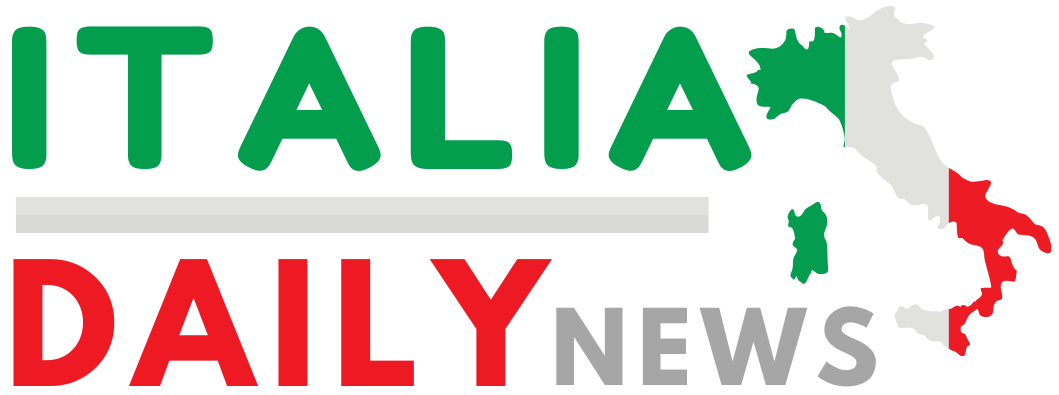Two visions of European finance clash at elite Italian banking gathering
A bitter clash between the EU and Rome over a proposed bank merger reveals two contrasting visions for Europe.
MILAN — On a Friday morning under the boiling Lombard sun, the old men of Italian banking descended on the country’s financial capital to bask in their industry’s astonishing recent run of success.
But the avuncular embraces over sugared breakfast treats gave way to nervous gossiping when the time came to discuss — sotto voce — the latest twists and turns in a high-stakes game of ‘Risk’ that continues to convulse this tight-knit family of financial elites — and now threatens a protracted conflict between Brussels and Rome.
Over the past six months, the Italian banking sector has been consumed by a convoluted series of bids and counter-bids involving almost every major player in the country. Recently, the drama has veered toward a climactic denouement as a seemingly heavy-handed response from Rome toward one takeover bid in particular set off a conflagration between the Italian government and the European Commission, exposing their contradictory visions for Europe’s financial future.
It began last year, when Milanese banking giant UniCredit angered Prime Minister Giorgia Meloni’s government by attempting to take over crosstown rival BPM, which Meloni had hoped to merge with the partially bailed-out Tuscan lender Monte dei Paschi di Siena. In response, Rome deployed screening tools known as the ‘golden power’ — whose purpose is to prevent malicious foreign investment — to impose tough conditions on the bid, which UniCredit claims has effectively blocked it, prompting a court battle that unfolded earlier this week.
But more broadly, Rome’s strong-arming has also come into conflict with the grand industrial vision of the Commission, which has placed consolidating Europe’s still-fragmented banking market at the center of Europe’s new — and what it describes as an increasingly urgent — competitiveness drive. Commission officials are readying a warning to the Italian government on its misuse of golden power to hamper UniCredit’s bid for BPM.
At the annual assembly of the Association of Italian Banks (ABI) on Thursday, those tensions played out in real-time between financial officials and their industry counterparts — albeit in muted form.
On the surface, it was more like an infrequent gathering of a fractious family that wants to keep up appearances over festivities, and there was no explicit mention of the drama in public comments.
But on the industry and regulatory side, the speeches contained barely concealed paeans to free-market capitalism and the virtue of unmolested free markets. ABI Chairman Antonio Patuelli, a spry veteran of the scene, emphasized the importance of advancing the European banking union, calling for “common rules for corporate governance, markets, savings and investment.”
In a conspicuous swipe at the Italian government — and its controversial alignment with construction billionaire Francesco Gaetano Caltagirone — he added that “competition must always be developed and safeguarded,” and that banks and “non-traditional financial actors … must be subject to the same rules.”
But Italian officials painted a different picture, arguing that the EU and those sympathetic to its supranational vision of European industry misunderstand what Italy is doing. The government has already signaled in a recent court hearing that it will fight its doubters to the last, even through the European Court of Justice.
Speaking to POLITICO, one Treasury official said Rome’s interventions into UniCredit’s adventures were a genuine matter of national security, as important as boosting defense spending.

To him, it’s the EU being heavy-handed, not Rome.
“The Italian people elected a sovereigntist government, why are people surprised when we do sovereigntist things?” the person said.
Much of the concern over UniCredit’s move stems from broader discontent in Italy over the way its banks have failed to translate whopping gains into tangible benefits for average Italians. After teetering on the edge of cataclysm during the global financial crisis, Italian banks pulled off a dramatic turnaround, bolstering their capital and reducing their holdings of bad debt.
But as Italian Finance Minister Giancarlo Giorgetti told the ABI attendees, the banks’ pronounced growth has come at the expense of much of their regional character.
“The organizational, income and capital strengthening of Italian banks over the last 15 years has not always translated into more favorable credit conditions but rather into a reduction in lending to businesses,” he said.
He highlighted that the “exceptional returns” to shareholders — with UniCredit hitting record profits in the first quarter of 2025 thanks to a major boost from high interest rates — “were made possible thanks to public guarantees… So it is legitimate to ask whether we’re witnessing an excess of ‘financialization.'”
There are good reasons for the government to be concerned. Italy, which after Greece has the highest debt in the EU as a proportion of GDP, is sensitive to large moves involving holders of its sovereign debt. Meanwhile, the country’s countless small and medium-sized enterprises, which make up a major part of the government’s electoral base, are reliant on the kind of easy credit access that BPM — a bank with strong ties to Northern Italy — might be less inclined to give if subsumed into the more international UniCredit.
To others, Europe’s ambition to rival the United States on the financial stage might run counter to the more narrow interests of Rome and — more importantly — the Italian people.
“The European Union doesn’t understand,” said one Italian regulatory official, speaking on condition of anonymity. “We’re dwarves, and we’ll never seriously compete with the U.S.”
Giorgetti himself said much the same, calling on the nation’s banks to “focus as much as possible on doing their part: going back to being banks.”
Francesca Micheletti contributed to this report.











